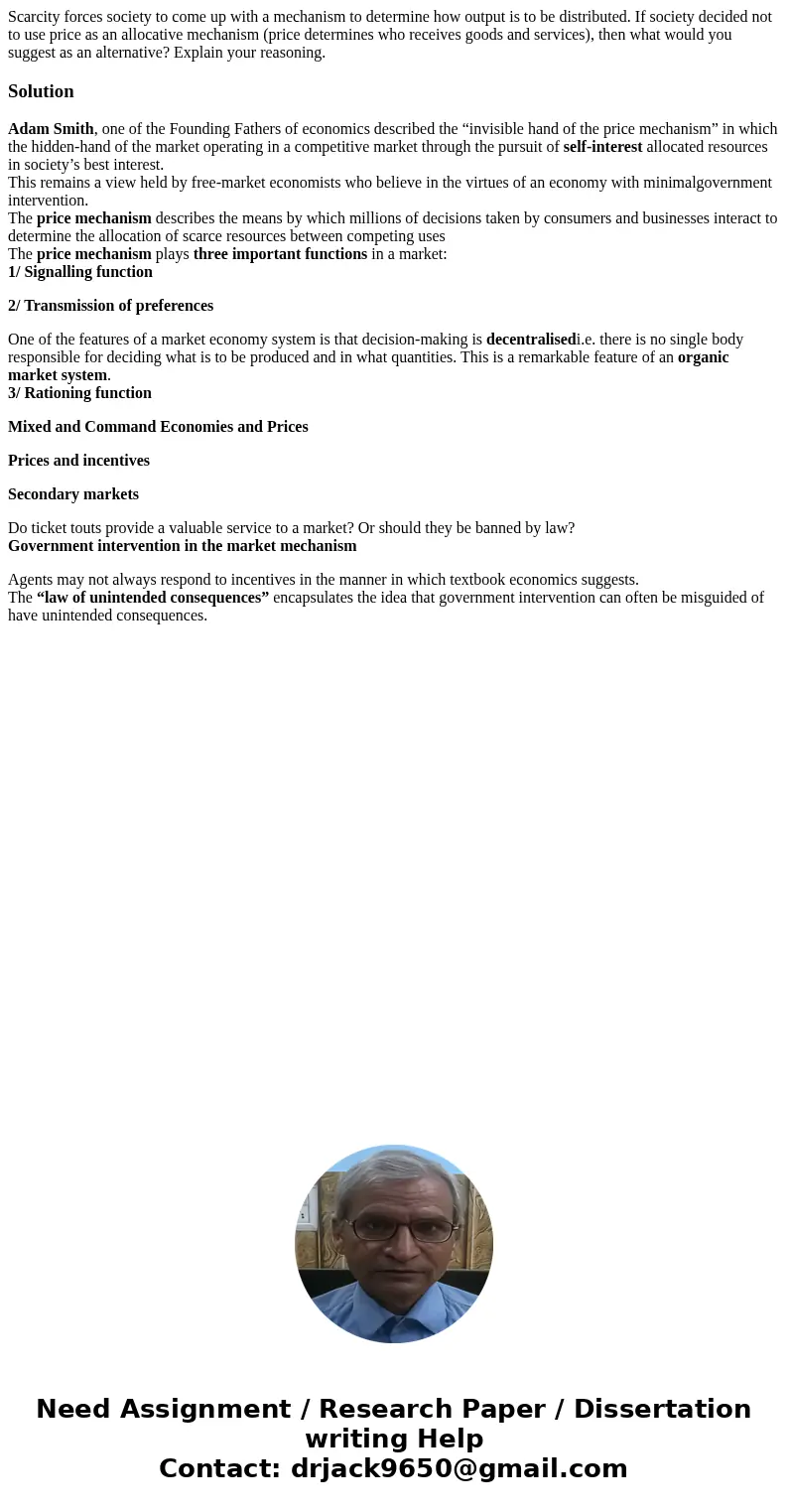Scarcity forces society to come up with a mechanism to deter
Scarcity forces society to come up with a mechanism to determine how output is to be distributed. If society decided not to use price as an allocative mechanism (price determines who receives goods and services), then what would you suggest as an alternative? Explain your reasoning.
Solution
Adam Smith, one of the Founding Fathers of economics described the “invisible hand of the price mechanism” in which the hidden-hand of the market operating in a competitive market through the pursuit of self-interest allocated resources in society’s best interest.
This remains a view held by free-market economists who believe in the virtues of an economy with minimalgovernment intervention.
The price mechanism describes the means by which millions of decisions taken by consumers and businesses interact to determine the allocation of scarce resources between competing uses
The price mechanism plays three important functions in a market:
1/ Signalling function
2/ Transmission of preferences
One of the features of a market economy system is that decision-making is decentralisedi.e. there is no single body responsible for deciding what is to be produced and in what quantities. This is a remarkable feature of an organic market system.
3/ Rationing function
Mixed and Command Economies and Prices
Prices and incentives
Secondary markets
Do ticket touts provide a valuable service to a market? Or should they be banned by law?
Government intervention in the market mechanism
Agents may not always respond to incentives in the manner in which textbook economics suggests.
The “law of unintended consequences” encapsulates the idea that government intervention can often be misguided of have unintended consequences.

 Homework Sourse
Homework Sourse